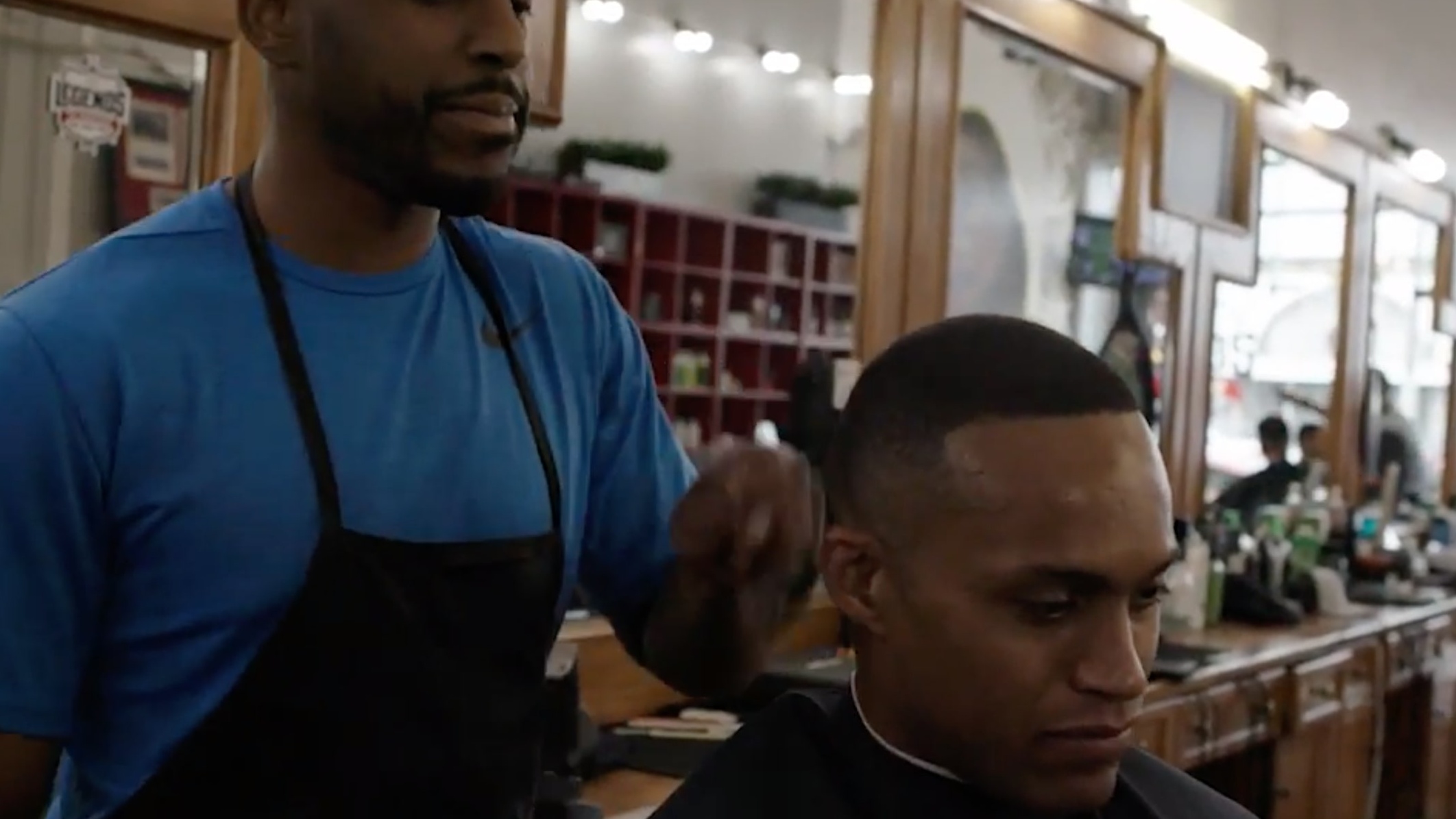A California judge ruled in favor of Nikko Briteramos on Thursday after he sued Los Angeles barbershop King of Kuts.
The shop reportedly refused to service him after they found out he was HIV positive.
U.S. District Court Judge Andre Birotte Jr. ordered King of Kuts to pay Briteramos damages amounting to $75,000, $4,600 in attorney fees and $574.60 in court costs.
Briteramos filed the lawsuit in January, but King of Kuts never responded to multiple judgements. As a result, they pushed Judge Birotte Jr. to agree that the barbershop violated the Americans with Disabilities Act and California’s Unruh Civil Rights Act.
“This judgment is proof that what happened to me in that barbershop and what happens to people living with HIV who experience discrimination just trying to do basic things in life like go the dentist or get a haircut is simply not acceptable,” said Briteramos.
“Such discriminatory practices harken back to times not too distant during the period of American ‘Jim Crow’, and are equally unjust. I am even more grateful that I can continue to tell my story through the Cut the Stigma campaign and share with people how harmful these moments of discrimination can be to those living daily with HIV and to the fabric of society.”
Briteramos said he had gone to King of Kuts multiple times before the night of October 13, 2017. When he arrived that day, he ran into a new barber who knew him from Chicago, where he grew up.
The barber quickly told the other barbers at King of Kuts that Briteramos was HIV positive. Later on, the barber he had an appointment with came outside to tell him he could not cut his hair.
"Don't worry about the other times I cut your hair, but I can't cut your hair anymore," the barber told Briteramos as he shook his hand.
"I have a lot of celebrity clientele."
Briteramos is well known in Chicago and South Dakota because of his involvement in a 2002 court case. He was one of the first people charged by the state of South Dakota for violating a recently passed law making it a felony to knowingly expose a person to HIV.
At the time, Briteramos was a 19-year-old college basketball player. He donated blood during a 9-11 Red Cross drive in February 2002 and was quickly notified that he was HIV positive. He went on to have sex with his girlfriend multiple times the next month without notifying her of his status.
He ended up spending 18 months in South Dakota State Penitentiary and his case kicked off a national conversation about the unfairness of these partner notification laws, which at that point were passed in 30 states.
Since his case, some partner notification laws have been struck down by Appeal Courts and many states opt against using them. Instead, many states charge people with aggravated battery or attempted murder.
Because the case is widely covered on the internet, Briteramos said he constantly has to deal with people looking up his name and discriminating against him because of his status.
He partnered with Black AIDS Institute and Lambda Legal to start the Cut The Stigma movement aimed at "engaging Black businesses, including barbershops, around the country this summer to dispel misconceptions surrounding the transmission of HIV and reduce HIV stigma and its resulting discrimination."
"There's the misconception of transmission that lingers, as well. I think the misconception mostly is that people think that incidental or superficial blood contact is sufficient to transmit HIV. If I'm playing a sport and someone scratches me or something, or if there's superficial contact, then there's not going to be a transmission — even less so if someone is taking [antiretroviral] drugs.," Briteramos said in an interview last year with The Body.
"It's easy for someone to say, "I don't discriminate against someone who is HIV positive," when the HIV-positive person is on the other side of the room. That's something you really can't commend. We need to get to the point where the close contact, the incidental contacts, don't become an issue for discrimination either. That's something that has yet to be addressed completely."
Activists are hoping the Cut The Stigma will help bring awareness to the issue and make businesses more aware of the ramifications of discriminating against those with HIV.
“Nikko’s experience highlights how Black people living with HIV are confronted with discrimination every day, but this judgment puts businesses on notice that discrimination will not be tolerated," Raniyah Copeland, CEO of the Black AIDS Institute, said in a statement.
"Freedom for Black people means that ALL Black people deserve to live without fear of discrimination.”
